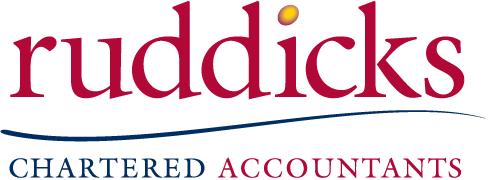Single Touch Payroll (“STP”) Phase 2 deadlines are approaching fast
MYOB Payroll has updated its software and payroll users have until 1 January 2023 to make the move to STP Phase 2.
Xero Payroll has updated its software and payroll users have until 31 March 2023 to make the move to STP Phase 2.
Other payroll providers, who have not yet moved to STP Phase 2, and need more time to make the relevant changes should have applied for a deferral and will let you know what date you are required to start STP 2 reporting.
You do not need to apply for more time if your payroll provider has received a deferral and you transition your payroll before the deadline.
However, if you still need more time beyond your provider’s deferral date, you are able to apply to the ATO to delay your transition. See more information on how to do this here.
So what’s STP 2 all about?
The expansion of STP to Phase 2 will reduce reporting burden for employers who need to report information about their employees to multiple government agencies. It will also help Services Australia’s customers, who may be your employees, get the right payment at the right time.
The main changes are:
Tax file number declaration
Phase 2 will incorporate employee tax information via STP reporting, which eliminates the need to submit tax file declarations to the ATO as a separate process.
Income type and country codes
The reporting of income types is being introduced in Phase 2 to more flexibly:
- Identify payments you make to your employees with specific tax consequences
- Make it easier for them to complete their individual income tax return
- Help the ATO identify where you are using a concessional reporting arrangement
- Report a country code if staff are working overseas
Termination reason
Specifying a reason for termination will be mandatory when an employee finishes their employment. Phase 2 will require the reason for termination to be included in the STP report sent to the ATO.
Allowance types
You’ll now need to report all allowances separately in your STP Phase 2 report across most income types. This means that allowances previously reported as gross must now be separately itemised and reported.
Directors fees
If you pay directors’ fees, you must separately include these in your STP Phase 2 report.
Lump Sum W (Return to work) payments
A return to work amount is paid to induce an employee to resume work. For example, to end industrial action or to return from working for another employer. This is a new category of lump sum payments which is being introduced as part of STP Phase 2.
Tax treatment codes
Your STP Phase 2 report includes a six-character tax treatment code for each employee. The tax treatment code is an abbreviated way of telling the ATO about factors that can influence the amount you withhold from payments to your employees.
Bonuses and commissions
There might be times when you pay some employees bonus and commission payments, which are typically paid as a lump sum. Previously they were reported as part of gross payments, but for STP Phase 2 they’ll be reported separately.
Lump Sum E payments
This is used when you make lump sum payments for back pay from prior income years.
STP Phase 2 requires these payments to be reported with the tax year they originated in before finalising an employee’s records.
For more information about STP Phase 2 click here.
Need any help?
Contact your Ruddicks adviser who will be able to help you navigate STP Phase 2.
Want to learn more?
- ATO’s “Get ready” checklist - https://www.ato.gov.au/business/single-touch-payroll/start-reporting/stp-checklists/?anchor=Getreadychecklist#Getreadychecklist
- ATO’s “Start Reporting” checklist - https://www.ato.gov.au/business/single-touch-payroll/start-reporting/stp-checklists/?anchor=Getreadychecklist#Startreportingchecklist
- ATO website - https://www.ato.gov.au/Business/Single-Touch-Payroll/
- MYOB users - https://help.myob.com/wiki/display/myob/Getting+ready+for+STP+Phase+2
- Xero users - https://central.xero.com/s/article/About-Single-Touch-Payroll-Phase-2#STPPhase2changes
DISCLAIMER:
Liability limited by a scheme approved under Professional Standards Legislation.
The content of this newsletter is general in nature. It does not constitute specific advice and readers are encouraged to consult their Ruddicks adviser on any matters of interest. Ruddicks accepts no liability for errors or omissions, or for any loss or damage suffered as a result of any person acting without such advice. This information is current as at 10 November 2022, and was published around that time. Ruddicks particularly accepts no obligation or responsibility for updating this publication for events, including changes to the law, the Australian Taxation Office’s interpretation of the law, or Government announcements arising after that time.
Any advice provided is not ‘financial product advice’ as defined by the Corporations Act. Ruddicks is not licensed to provide financial product advice and taxation is only one of the matters that you need to consider when making a decision on a financial product. You should consider seeking advice from an Australian Financial Services licensee before making any decisions in relation to a financial product. © Ruddicks 2022

